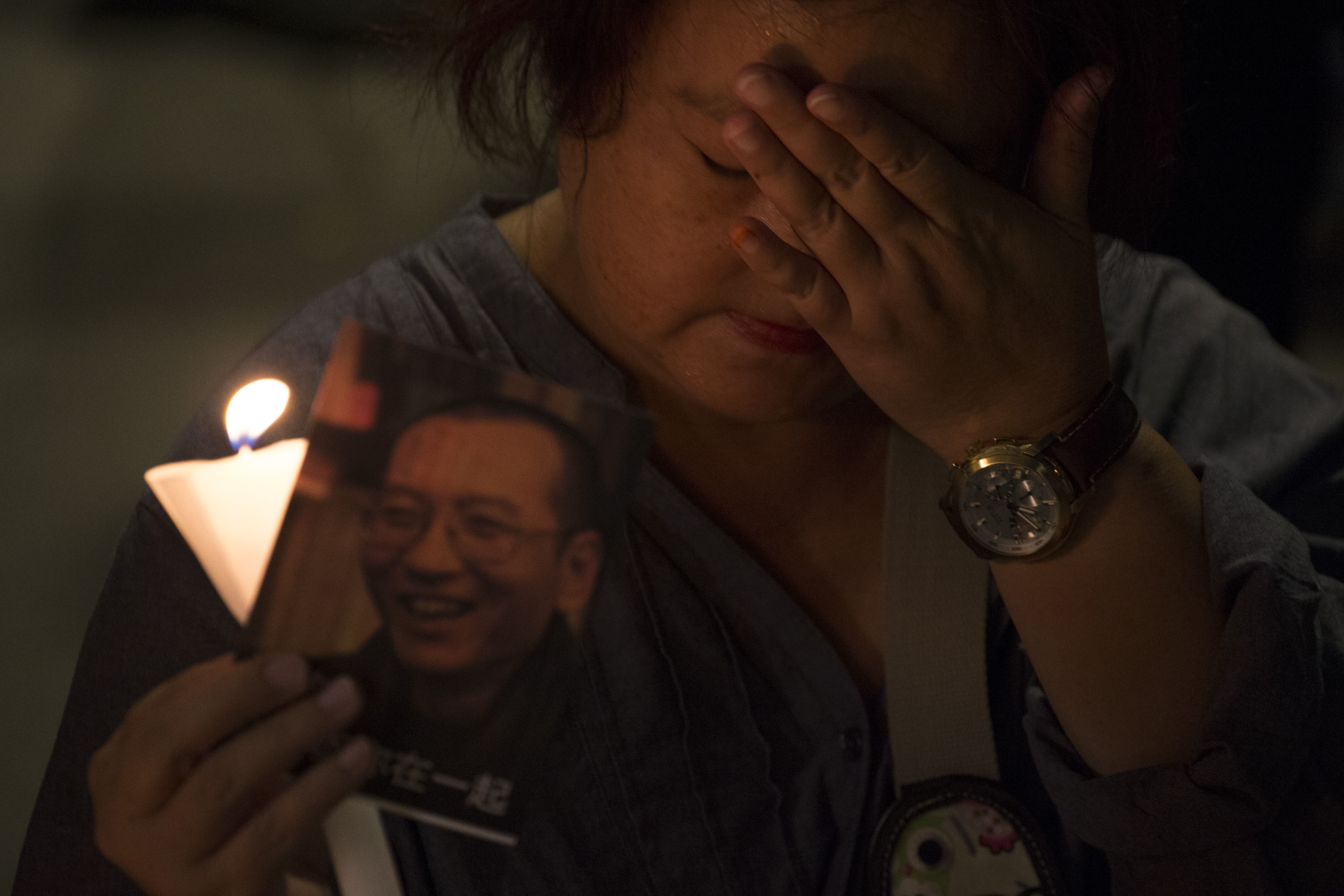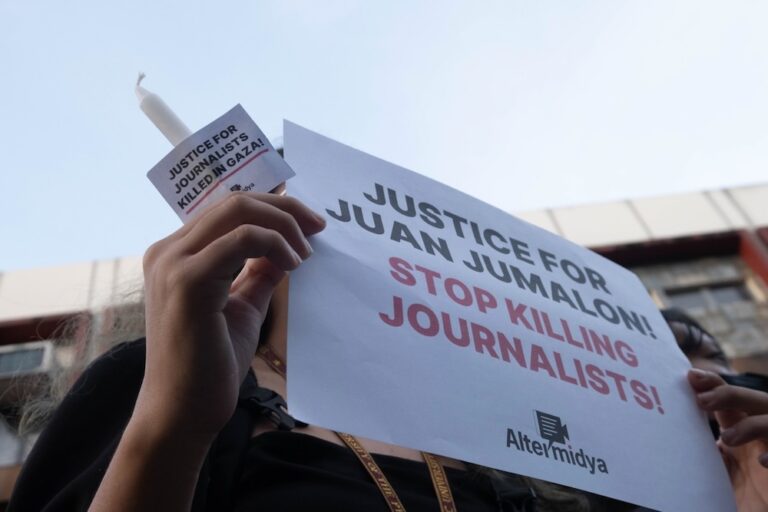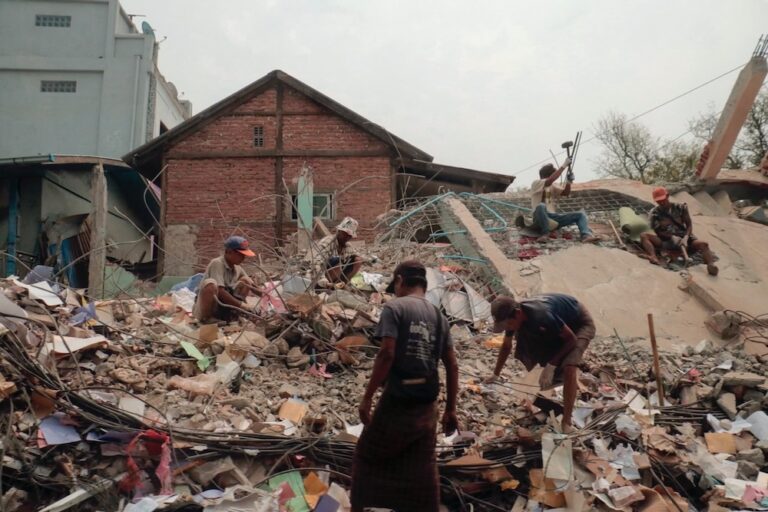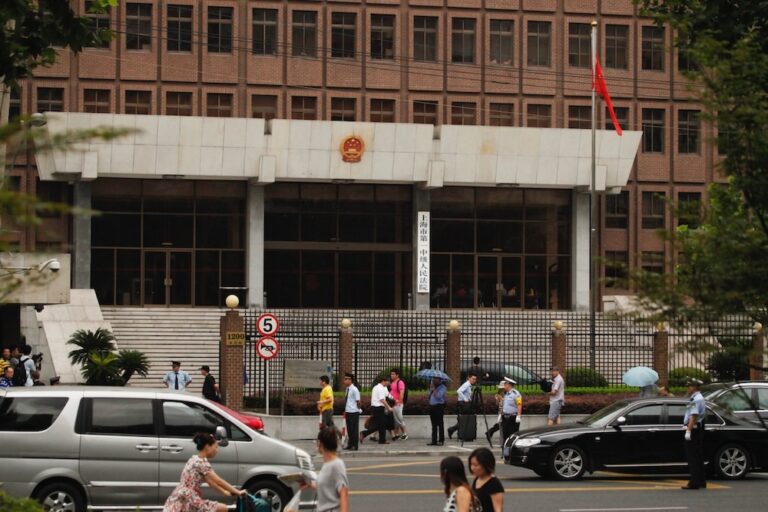China releases Liu Xiaobo on medical parole; #FreeThe5KH out on bail; journalists escape jail term in Timor Leste; "Mother Mushroom" sentenced to 10 years
One of China‘s most prominent human rights activists and writer, Liu Xiaobo, 61, is out of prison – but there’s little to celebrate. He was released on medical parole on 26 June 2017 after being diagnosed with late stage liver cancer last month, and is not likely to receive the medical care that he needs. He has been moved to a hospital in Shenyang, which is the capital city of the northeastern province of Liaoning.
PEN International, which has been campaigning for his release, has called on the authorities to let him seek medical attention wherever he chooses and to let his wife, poet Liu Xia, to accompany him. Liu Xia has been under house arrest since October 2010, after Liu Xiaobo was awarded the Nobel Peace Prize for his work as a human rights campaigner since 1989. He was detained in December 2008 for co-writing Charter 08 that called for reforms, and jailed 11 years. His crime: “incitement to overthrow the state power and socialist system and the people’s democratic dictatorship.”
International reaction to the news was immediate. Reporters Without Borders (RSF) said it regretted that Liu Xiaobo had to be terminally ill to have him moved to a hospital. Human Rights Watch said the Chinese authorities should immediately lift all restrictions on the couple and end the harassment of those who have supported them.
Chancellor #Merkel; pls offer urgent medical transfer of #Nobel laureate #LiuXiaobo & family to #Germany. He’s finally free but gravely ill. pic.twitter.com/MTNLokNHvH
— Lotte Leicht (@LotteLeicht1) June 26, 2017
#China should immediately ensure that #LiuXiaobo, who has been diagnosed with late stage liver cancer, receives adequate medical care. pic.twitter.com/g4oEXmPFbq
— William Nee (@williamnee) June 26, 2017
Terrible news. Liu Xiaobo a true free speech hero of our times…#LiuXiaobo @iandenisjohnson @onfreespeech https://t.co/p5fyGvFnHa
— Timothy Garton Ash (@fromTGA) June 26, 2017
Our client and 2010 Nobel Peace Laureate Liu Xiaobo has been released on medical parole https://t.co/0PKf7ALVZM pic.twitter.com/E9fMvc5b71
— Freedom Now (@freedomnoworg) June 26, 2017
PEN Canada sent a letter to Prime Minister Justin Trudeau to pressure China to grant access to treatment for Liu Xiaobo and to formally discharge him from the remainder of his sentence. In a 29 June letter, 154 Nobel Laureates urged Chinese President Xi Jinping to let the Liu family travel to the U.S. for treatment. RSF, together with Freedom House and the International Federation of Journalists (IFJ) also issued a letter of appeal to the president to intervene on humanitarian grounds. The Chinese government is refusing to allow him to go abroad saying that he was too weak to travel. Meanwhile, Chinese dissidents mobilised a petition online, which was quickly restricted by the authorities, but within 24 hours, it gathered about 1,500 signatories.
Update:In 24hrs, near a thousand Chinese dissenters signed up to urge #LiuXiaobo release. English version of urge letter has been attached. https://t.co/dcqQZo9x44
— zhao sile (@longlivebelief) June 28, 2017
cartoon of the day 2 – Liu Xiaobo is free … @PravitR @Reaproy @KenRoth @amnesty #LiuXiaobo pic.twitter.com/V6uNfX5jWu
— stephff cartoonist (@stephffart) June 27, 2017
China has one of the highest numbers of journalists, writers and activists behind bars. In 2015, the government launched a crackdown on more than 200 human rights lawyers, their family members and staff, targeting firms that have represented high profile individuals who have been critical of the government, such as artist Ai Weiwei and Uighur academic Ilham Tohti.
In Hong Kong, pro-democracy activists took to the streets calling for greater freedoms and extended their support for Liu Xiaobo’s full release.
#China must release Nobel Winner #LiuXiaobo & democratise, says activist @joshuawongcf – Full story: https://t.co/AWmrnjAFmu #HongKong pic.twitter.com/baPi4PKacS
— Hong Kong Free Press (@HongKongFP) June 27, 2017
The activists and the public were gathering ahead of the 20 year anniversary of its handover by the British to China on 1 July and a scheduled visit by President Xi Jinping. Student leaders Joshua Wong and Nathan Law were among those arrested during the protests.
RSF said in its report that media freedom had significantly declined in Hong Kong over the two decades since the handover. Most significant is the control over mainstream media by forces that are seen as pro-Beijing and the restrictions placed on independent online news portals that are denied access to official events. The last few years have also witnessed physical attacks on editors to silence them, as in the case of Ming Pao chief editor Kevin Lau Chun to, who was seriously wounded in a knife attack in 2014, and the disappearance of five publishers and booksellers since 2015.
In Cambodia, five human rights defenders were released from their pre-trial detention on 29 June after being held for 427 days. The five are Lim Mony, Ny Sokha, Yi Soksan and Nay Vanda from the non-governmental organisation ADHOC, and National Election Committee deputy secretary general Ny Chakrya. They were charged with bribery in a case of a purported affair involving opposition politician Kem Sokha.
Civil society and the international community consider the charges politically motivated. In November 2016, the UN Working Group on Arbitrary Detention had declared the detention of the five as arbitrary, a finding that was welcome by the Cambodian Center for Human Rights. IFEX members lent their voice to a global campaign to #FreeThe5KH since August 2016. The decision to release the five, who have been held at the Phnom Penh’s Prey Sar and Police Judiciaire prisons, was made by the Investigating Judge Theam Chan Piseth, who closed the investigation and sent the case to trial for later.
. @AbbottKingsley of @ICJ_org : “We should take heart from the release of the #FreeThe5KH detainees, which reminds us never to give up hope”
— CCHR Cambodia (@cchrcambodia) June 30, 2017
#Cambodia: #FreeThe5KH released after more than a year in pre-trial detention https://t.co/KVpNMsdPXW pic.twitter.com/sgJx8VyV4o
— AG (@ag_fidh) June 30, 2017
Press freedom
In Timor Leste, two journalists, Oki Raimundos and Lourenco Martins had criminal defamation charges against them dismissed by the Dili District Court on 1 June. The IFJ welcomed the decision as a victory for press freedom and the media community, which campaigned for justice for the two. It said international pressure had helped the case and prevented the two from having to serve jail terms. Raimundos and Martins were charged under Article 285(1) of the country’s Penal Code for ‘slanderous denunciation’ by the Prime Minister Rui Maria de Araujo, over an investigative article published in the Timor Post that implicated him when he was adviser to the finance minister in 2014. The complaint resulted from an error in the story, which the paper later corrected and apologized for. A week before the sentence was due to be announced, prosecutors were pushing for a year’s sentence for Raimundos and a two-year suspended sentence for Martins. The Southeast Asian Press Alliance had criticised the move, saying it would lead to self-censorship among journalists and discourage them from reporting on corruption. Timor Leste has the best record for press freedom in Southeast Asia, according to the RSF’s press freedom index.
In Vietnam, blogger Nguyen Ngoc Nhu Quynh, popularly known as ‘Me Nam’ (‘Mother Mushroom’) was not as lucky: she was sentenced to 10 years in jail on 29 June on charges of conducting propaganda against the state under the notorious Article 88 of the Penal Code. She was held incommunicado since her arrest in October 2016. Quynh used to write on her own blog, and contributes to platforms hosted abroad such as Dan Lam Bao. The Committee to Protect Journalists produced a video as part of their campaign calling for her release.
The Vietnamese Bloggers’ Network said in its statement that the sentence was also a verdict for Quynh’s two children and mother, who had endured tremendous suffering since her detention, and a “terrorizing message” to other citizens as well as the human rights defenders who face persecution for raising their concerns on issues such as environmental protection and public health. As a blogger, Quynh had written on various public interest topics, including the controversial Formosa toxic spill that led to mass fish deaths in April 2016.
Five UN human rights issued a joint statement to condemn the verdict and noted that it was “the culmination of eight years of continuous harassment suffered by Ms. Quynh, including frequent travel bans, intimidation, physical assaults, threats and hindrance from joining peaceful protests”.
#UN experts condemn #Vietnam‘s jailing of blogger #mothermushroom https://t.co/cfaaVrhN7m @davidakaye @SREnvironment @JoseAGuevaraB
— Michel Forst SR HRD (@ForstMichel) June 30, 2017
Information and expression are under control in Vietnam, where individuals have used blogs and social media to counter government and mainstream media propaganda. This has come at a high cost for many of the bloggers and activists, such as Quynh. In a June report, Human Rights Watch documented at least 36 cases of physical assaults on bloggers and activists in Vietnam by “thugs”, often in the plain view of uniformed police.



